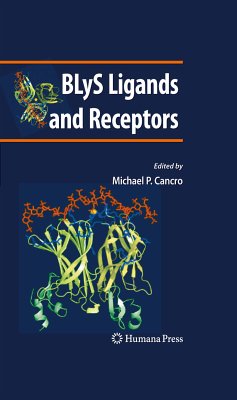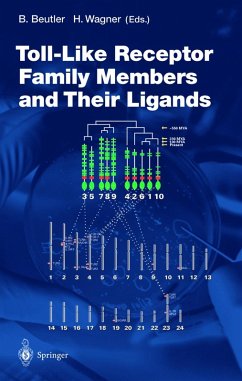
Negative Co-Receptors and Ligands (eBook, PDF)
Versandkostenfrei!
Sofort per Download lieferbar
112,95 €
inkl. MwSt.
Weitere Ausgaben:

PAYBACK Punkte
56 °P sammeln!
Adaptive immune responses serve as a key defense mechanism for the control of infections in vertebrates. Immune responses must be of sufficient strength to contain invading pathogens, antigen specific responses require regulatory mechanisms to ensure termination or downmodulation to avoid excessive damage to the host tissue. For both branches of the adaptive immune system, regulatory molecules i.e. coreceptors and ligands have been identified that control the signaling cascades initiated by engagement of the T cell and B cell antigen receptors. This book describes biological functions as well ...
Adaptive immune responses serve as a key defense mechanism for the control of infections in vertebrates. Immune responses must be of sufficient strength to contain invading pathogens, antigen specific responses require regulatory mechanisms to ensure termination or downmodulation to avoid excessive damage to the host tissue. For both branches of the adaptive immune system, regulatory molecules i.e. coreceptors and ligands have been identified that control the signaling cascades initiated by engagement of the T cell and B cell antigen receptors. This book describes biological functions as well as molecular mechanisms of these molecules.
Dieser Download kann aus rechtlichen Gründen nur mit Rechnungsadresse in A, B, BG, CY, CZ, D, DK, EW, E, FIN, F, GR, HR, H, IRL, I, LT, L, LR, M, NL, PL, P, R, S, SLO, SK ausgeliefert werden.













